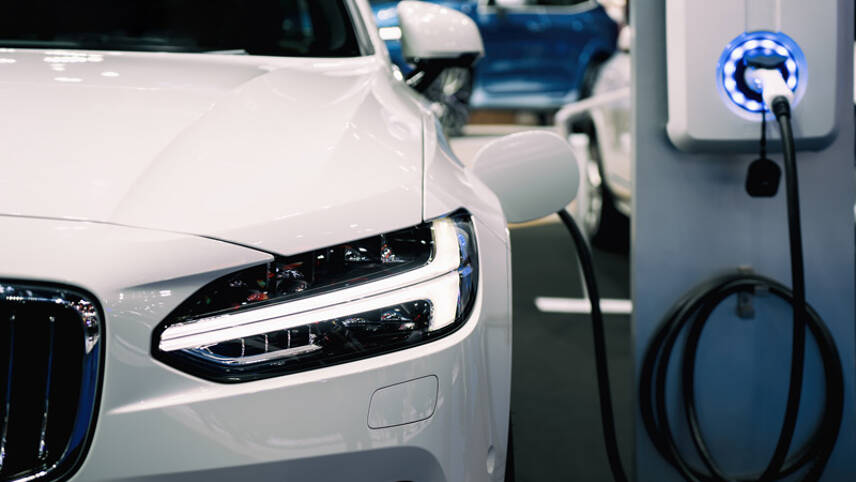Register for free and continue reading
Join our growing army of changemakers and get unlimited access to our premium content

In 2021, the Government announced that the ban on new petrol and diesel cars had been moved forward to 2030; however, there are some exceptions to the ban, with some plug-in hybrids (PHEVs) and some full hybrids still able to be sold up until 2035. These hybrids can notably still be filled up at petrol stations.
However, the ECIU survey of more than 1,500 respondents found that 45% of the public believes an outright ban will be introduced by 2030.
The ECIU has warned that this could create extra confusion about the UK’s charging infrastructure, which in turn could detract people from investing in electric vehicles (EVs).
ECIU’s head of transport Colin Walker said: “The British public are being confused. Firstly, by hype suggesting the phase-out date for new petrol and diesel cars is much sooner than it really is.
“You’ll still be able to buy a new car you can fuel with petrol until 2035, giving us more than a decade to build up the charging infrastructure for those making the switch in the next 12 years. Many would suggest we’re talking the country down if we don’t think the UK can do that particularly with the charging industry committing an extra £6bn in investment.”
The ECIU noted that these hybrid vehicles are not dependent on electric chargers to drive.
The survey further revealed that 68% of Britons underestimate the number of drivers who have access to off-street parking needed for the installation of EV private chargers, , while 44% of British adults believe owning an EV to be more expensive than a petrol car.
Walker added: “EVs are often much cheaper to fuel and own. Charging at home, available to the majority of UK households, makes an EV many times cheaper to fuel. Only a complete reliance on expensive, rapid chargers – a highly unrealistic scenario – would render an EV more expensive to fuel than a petrol vehicle.
“Despite this, industry sales figures show British drivers are continuing to drive up EV sales.”
According to recent industry sales figures, the demand for EVs has increased by 40% year on year, with almost one in five new cars sold in June being a battery EV.
ECIU further revealed that 80% of the UK-made cars are exported to the EU, China, and US, which are all now introducing EV targets.
If the UK fails to respond to these changes in demand, it could lose £13.3bn of car exports in 2030 alone, according to the organisation.
At the start of the year, the UK Government unveiled a new Electric Vehicle (EV) Smart Charging Plan, stating an ambition for smart charging to become the most popular method of long-duration vehicle charging at homes and workplaces within two years.
Fleet Managers on the EV transition
In related news, fleet managers are also investing more on the EV transition. According to a survey conducted by Lex Autolease, 66% of fleet managers have grown the number of EVs in their fleet by an average of 19% in the last year.
Out of the 1,500 fleet car drivers surveyed, 67% said electrifying their fleet was important for their sustainability targets and 75% said it was important to support employee engagement and recruitment.
This year, 67% of fleet managers expect the number of EVs in their fleet to increase by an average of 19%, while 100% believe their fleet to become entirely electric at some point in time.
Factors of concern to fleet managers include battery charging times (29%), the limited supply of EVs (28%), the logistics of installing charging infrastructure at home (27%), the availability of secondhand EVs (25%), the upfront cost of EVs (24%), and the limited choice of models (21%).
Nearly 80% of the respondents would like to see the Government set a mandate for the number of charge points it has to deliver, while 100% of the respondents said that the Government could do more to boost the uptake of EVs overall, among private drivers and businesses.


EVs are not a panacea to replace all internal combustion engine vehicles for several reasons which include the lack of a home driveway to install a charging point, particularly for compact terraced houses where find a parking place is difficult, and for drivers who have to drive long distances for their work and cannot afford the waiting time and high cost of high speed public charging points that may be out of order, or having a queue to access them. The solution for these drivers is to have a hydrogen-electric car (FCEV) which can be refueled at the same speed as petrol or diesel at a classic filling station; the problem is that in the UK there are very few hydrogen filling stations and FCEVs are still more expensive than EVs as the production volume is low, but as the cost of batteries rises with the cost of Lithium this will favour FCEVs that only have a small battery.
The decrease in carbon emissions by the use of an electric battery car are a little illusory. The car will have to charged via the mains supply, much of which is gas powered (methane).
Only natural power, wind or water, or nuclear generation will avoid CO2 production.
The science is very simple, but so often ignored in the politics and argument.
Ah me!